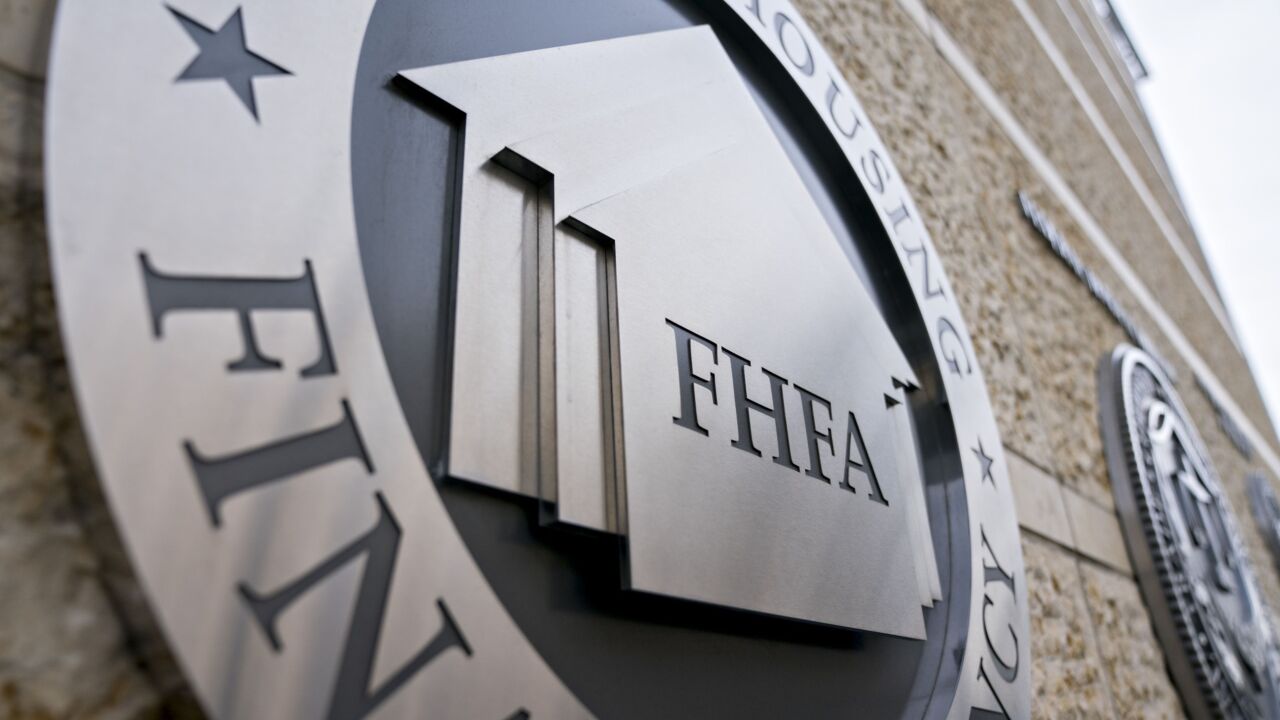
A month ago, it would have been laughable for the U.S. Treasury Department to send a letter to each of the
That was then ... this is now. The switch from Biden to Harris has wide implications. Among other things, the possibility that the federal regulatory apparatus will fall into the clutches of the Home Loan banks come January 2025 has diminished while the prospects that the banks will face a hostile regulator and an inquisitive Congress are elevated.
Last week, after a very unsatisfying
Suddenly, what a month ago would have been a mere annoyance, now becomes a real head-scratcher for the Home Loan banks. Oh, and by the way, the banks' answers are due at the Treasury Department by August 28. Stay tuned.
This reminds me of my old Marine drill instructor in Pensacola, who greeted all new recruits with this stern advice, "You can play ball with me, or I will place the bat somewhere that will be very uncomfortable for you!"
In 11 boardrooms across the country this week, Home Loan bank directors are gathering to fashion their responses to the Treasury Department. Those responses will shape the future of the banks for decades to come.
Here are their choices.
Option One: Play ball with the Treasury and with the Federal Housing Finance Agency by agreeing to increase their commitments to affordable housing from 10% to 20% of net income.
Option Two: Tell the Treasury to take a hike and hope for the best (or the worst depending on your point of view) on November 5.
The first option would seem to be the safest. It also has the advantage of being the right thing to do in light of the Federal Home Loan banks' annual
A report from the Office of Inspector General disclosed that the Federal Housing Finance Agency issued enforcement actions against two Home Loan banks.
The second option is the high-risk, high-reward route. If things go the banks' way on November 5, they can go back to
Of course, if November 5 does not go their way, they will be faced with a hostile administration, a hostile regulator and possibly a hostile Congress. In that case, a 20% floor for affordable housing will be off the table and the sky will be the limit on what an emboldened regulator might propose, and a new Congress enact.
Now, the Home Loan banks may be tempted to take the risk of thumbing their nose at Treasury because of two recent U.S. Supreme Court rulings.
In its last term, the court created a new doctrine called the "major questions" doctrine. According to that split decision, major questions of economic consequence must be addressed by Congress, not by regulatory agencies. Defining the mission of the Home Loan banks can be seen as the responsibility of Congress not the regulator. This plays into the hands of the banks as their influence in the lobbies of Congress is legendary.
In its current term, the court reversed decades of precedents and clipped the wings of all regulators by eliminating "Chevron deference" — the reliance on regulatory agencies to interpret ambiguous statutes. Under the new rules, lower courts now have that responsibility.
These rulings may embolden the Home Loan banks into thinking that even if a hostile regulator moves to get them back on course, they will win in the courts after having lost before the regulator. Such a victory would come at substantial reputational cost to the banks. Bear in mind, however, that the court of public opinion is not a forum that they have cared much about pleasing.
Regardless of which option the Federal Home Loan banks choose, one thing is certain.
Should they choose to answer Under Secretary Adeyemo's letter with one letter from their highly paid Washington lobbyist or with 11 anodyne letters from the board chairs, each saying essentially the same thing, the thin illusion they have erected about each Home Loan bank being "independent" will have vanished. Consolidation of the Home Loan banks will be on the table.
And that's a good thing.






